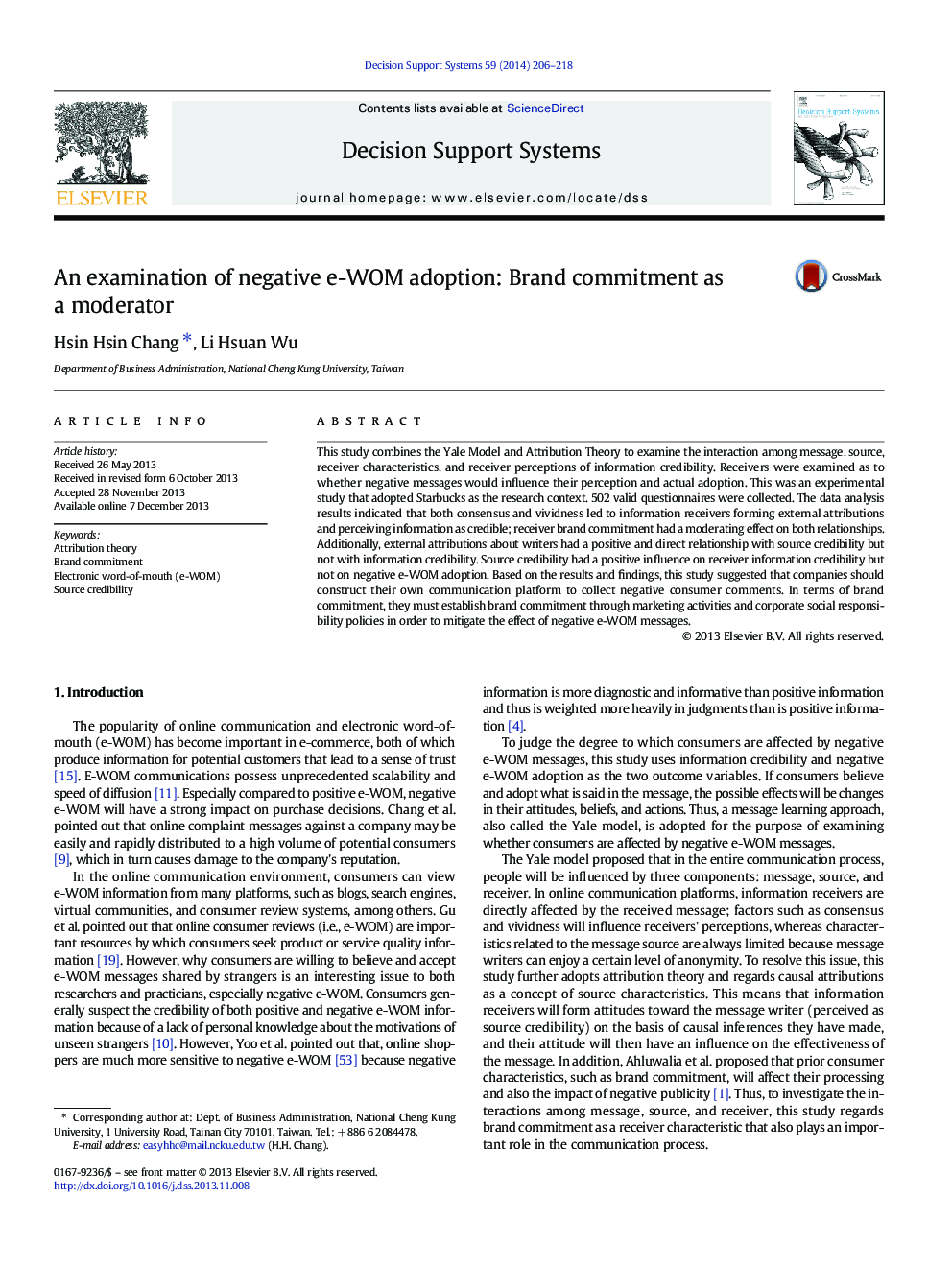| Article ID | Journal | Published Year | Pages | File Type |
|---|---|---|---|---|
| 552525 | Decision Support Systems | 2014 | 13 Pages |
•How consumers were influenced by a negative e-WOM message.•Combining the Yale model and attribution theory on negative e-WOM adoption.•Persuasions of information & source credibility on negative e-WOM adoption.•Moderating effects of brand commitment on negative messages attributions.
This study combines the Yale Model and Attribution Theory to examine the interaction among message, source, receiver characteristics, and receiver perceptions of information credibility. Receivers were examined as to whether negative messages would influence their perception and actual adoption. This was an experimental study that adopted Starbucks as the research context. 502 valid questionnaires were collected. The data analysis results indicated that both consensus and vividness led to information receivers forming external attributions and perceiving information as credible; receiver brand commitment had a moderating effect on both relationships. Additionally, external attributions about writers had a positive and direct relationship with source credibility but not with information credibility. Source credibility had a positive influence on receiver information credibility but not on negative e-WOM adoption. Based on the results and findings, this study suggested that companies should construct their own communication platform to collect negative consumer comments. In terms of brand commitment, they must establish brand commitment through marketing activities and corporate social responsibility policies in order to mitigate the effect of negative e-WOM messages.
